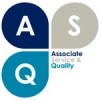Our mission
Compliance audits
We help you control environmental, health and safety risks in the workplace.
To
Carry out the audit and the regulatory compliance
We follow a well-defined process in order for you to understand our approach and bring you value.
Step N°1 : Definition of needs
Definition of needs with the client (at the time of establishing the costed proposal)
Step N°2 : Request
Request for documentation and definition of an audit schedule during a preparatory videoconference
Step N°3: Preliminary analysis
Preliminary analysis of the documents received (as far as possible)
Step N°4 : Site visit
Site visit, including interviews with managers (management team, EHS manager, HR, maintenance, production manager, team leaders, etc.) and analysis of documents on site. This visit will allow to analyze the working conditions and methods, the knowledge and the respect of the procedures by the stakeholders…
Step N°5 : Establishment of a list of remarks
Establishment of a list of remarks classified in principle into:
- Major non-conformance: Classification that represents a direct and immediate threat to human health or safety, or the environment. High risk of causing serious harm to associates and/or the environment.
- Minor non-compliance: A classification that presents a moderate risk to human health and the environment.
- Minor non-compliance: A classification that presents a moderate risk to human health and the environment.
Step N°6 : Allocation and scheduling
The table provided will include columns for assigning and planning corrective actions.
Step N°7 : Intermediate debriefing
Intermediate debriefing at the end of the day as needed
Step N°8 : Summary debriefing
Summary debriefing at the end of the audit.
Step N°9 : Sending of the deliverable
Sending of the deliverable in the form of an editable Excel document as well as a summary (Word or PowerPoint).
Examples of Major non-conformance
- Example a : Storage of hazardous waste without proper containment near a storm drain
- Example b. Intentional circumvention of the protection of a machine.
- Corrective actions should be initiated immediately for all major findings, and should be closed as soon as possible.
Examples of Minor non-compliance
- Exemple a. Ne pas déclarer ou tester les substances requises par la loi,
- Exemple b. Ne pas respecter les permis délivrés par les agences gouvernementales,
- Exemple c. Ne pas stocker les conteneurs d'huile usagée dans une zone requise,
- Exemple d. Ne pas avoir une fiche de données de sécurité à jour. .

Depending on your wishes, we can analyze the adaptation of your facilities to climate change in order to propose actions to increase the resilience of your site.
Our added value compared to an ISO auditor or a control body inspector is that we provide, as far as possible, proposed solutions discussed with the people concerned as well as a view encompassing the different aspects.
We adapt the audit method to your needs, so it can also, for example, be based on a rating scale such as frequency of exposure * Probability * Severity (in analogy to the assessment of occupational risks).
Our latest posts
Stay informed
Discover our articles published on various topics related to the environment, health and safety.

World Day for Safety and Health at Work: a Pillar for the Prevention of Occupational Diseases
Every year since 1996, World Day for Safety and Health at Work (WDSH) has been celebrated on 28 April (this year it is a Monday),

Hygiène industrielle et environnementale
L’hygiène industrielle est la branche de la sécurité au travail qui vise à prévenir les risques professionnels liés à l’environnement physique de travail. Elle concerne
Customer reviews
They talk about us.
We have already had the chance to work on different projects with several companies.





